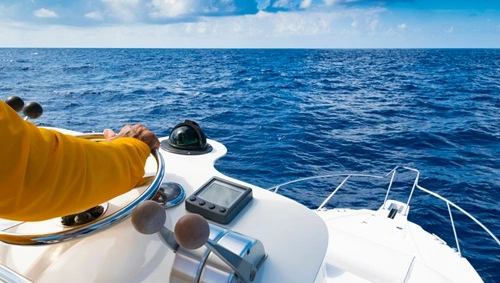Boating is a fun and relaxing activity, but owning a boat also comes with its responsibilities. Just like how you insure your car or bike, Boat Insurance provides coverage for your boat in case of accidents, damage, or liability. Whether you own a small fishing boat or a luxury yacht, having the right insurance is essential to protect your investment and safeguard against unexpected incidents on the water.
In this article, we will explore the advantages and disadvantages of boat insurance, helping you decide whether it’s the right choice for you.

Advantages of Boat Insurance
1. Protection Against Damage and Theft
One of the main reasons for getting boat insurance is to protect your boat from damage. Whether it’s due to a collision, fire, or natural calamities like storms, your boat is exposed to risks that could lead to costly repairs or replacement. Boat insurance covers these risks and ensures that you won’t have to pay from your own pocket in such situations.
Moreover, boat insurance often includes coverage for theft. If your boat is stolen, insurance can cover the cost of replacing it or compensating for the loss, which is especially important for expensive boats.
2. Liability Coverage
Just like car insurance, boat insurance provides liability coverage. This means if you accidentally cause damage to someone else’s property or injure another person while operating your boat, the insurance will cover the costs. This can include medical expenses, property repairs, and legal fees in case someone sues you. Without liability coverage, you might have to pay these expenses on your own, which can be financially draining.
3. Covers Towing and Assistance
Boats can sometimes break down in the middle of the water, and getting assistance or towing back to shore can be expensive. Many boat insurance policies offer towing and emergency assistance coverage, ensuring you get help without paying extra. This gives peace of mind, especially when you’re boating in remote areas.
4. Covers Personal Belongings
When you go boating, you often carry personal belongings like fishing gear, life jackets, or even electronic devices. In case of theft, fire, or accidental damage, boat insurance can also cover the cost of these personal items. This adds an extra layer of protection for your valuables while enjoying your time on the water.
5. Flexibility in Coverage
Boat insurance policies are often customizable, allowing you to choose coverage that fits your specific needs. For example, you can opt for additional coverage for racing events, coverage for water sports accidents, or coverage for specific geographical areas like rivers, lakes, or coastal regions. This flexibility ensures that your insurance matches your boating lifestyle.
Disadvantages of Boat Insurance
1. Additional Expense
One of the major downsides of boat insurance is that it’s an additional expense on top of owning and maintaining the boat itself. Depending on the size, type, and value of your boat, the insurance premiums can vary, and some policies might be expensive. For people with smaller or less valuable boats, this extra cost may seem unnecessary.
2. Exclusions and Limitations
While boat insurance provides good coverage, there are often exclusions and limitations in the policy. For example, most policies may not cover wear and tear, damages from poor maintenance, or accidents caused by negligence. Furthermore, some policies might exclude coverage in certain areas or during particular seasons, like the monsoon. It’s important to carefully read and understand the policy to know what is and isn’t covered.
3. Seasonal Usage Doesn’t Lower Costs
Unlike car insurance, where usage can impact the premium, boat insurance typically charges the same amount whether you use your boat frequently or only a few times a year. Since many boat owners use their boats seasonally, paying for a full year of coverage when the boat is not in use during certain months can feel like a waste of money.
4. Higher Premiums for High-Risk Areas
If you plan to use your boat in high-risk areas, like coastal regions prone to storms or areas with high boating traffic, you may face higher premiums. Insurers charge more if they perceive a greater chance of accidents or damage in these regions. This can make insurance costly, especially if you frequently use your boat in such places.
5. Complex Claims Process
Boat insurance claims can sometimes be complex and time-consuming. The process of proving damages, determining the cause of the accident, or assessing the liability can involve a lot of paperwork and delays. This can be frustrating, particularly if you need urgent repairs or compensation to get back on the water.
Conclusion
Boat insurance is an important consideration for anyone who owns a boat, providing coverage for damage, theft, liability, and personal belongings. It’s particularly beneficial for boat owners who use their vessels frequently or store them in high-risk areas. However, the additional costs, potential exclusions, and the seasonal nature of boat usage might make some boat owners question its necessity.
Before deciding on boat insurance, it’s crucial to evaluate your boat’s value, usage, and the risks involved. If you feel that the advantages outweigh the disadvantages, boat insurance can give you peace of mind and protect your investment.